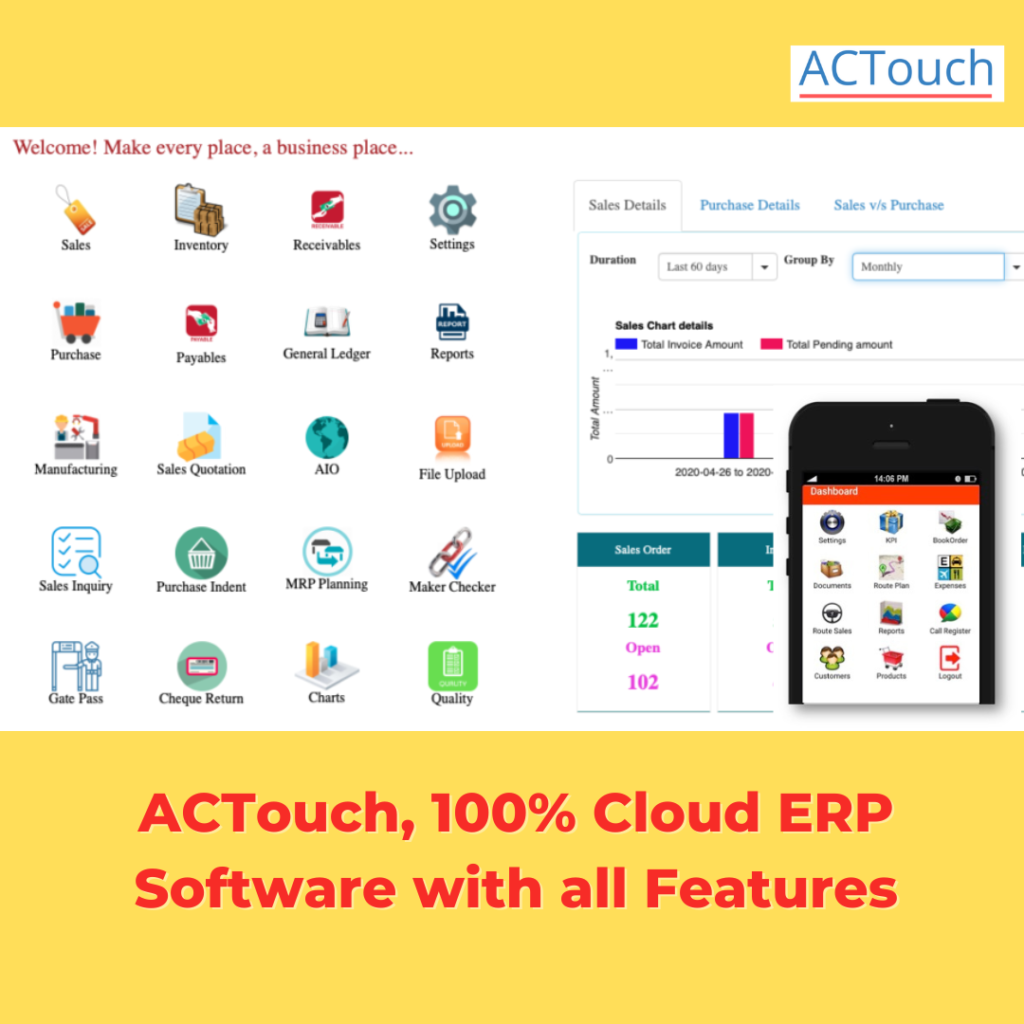What is ERP and CRM? Differences between ERP and CRM
What is ERP and CRM?
In the dynamic landscape of business management, two key players stand out: ERP and CRM. These acronyms, ERP (Enterprise Resource Planning) and CRM (Customer Relationship Management), represent powerful systems that empower businesses to streamline operations, enhance customer interactions, and drive growth. By leveraging these tools effectively, businesses can optimize processes, nurture customer relationships, and achieve new heights of success.

What Defines an ERP?
ERP, or Enterprise Resource Planning, is a comprehensive software solution that acts as a central nervous system for an organization. It integrates various business processes, departments, and functions into a unified system, enabling seamless communication and data sharing. From finance and inventory management to manufacturing and human resources, an ERP system provides a holistic view of an organization’s operations. This ensures that decision-makers have real-time insights into critical data, enabling them to make informed choices that enhance efficiency and drive strategic growth.
ACTouch ERP is a Cloud ERP Software that competes with major ERP Software in the world. We focus on the medium enterprises / manufacturing companies.
Check here to view the complete ERP Demo now.
Some of the key features of an Enterprise Resource Planning software are
- Supply Chain Management for business operations
- Inventory management for entire organization. Manage inventory costs.
- Project planning with Project management with centralized database
- Customer management
- Better Sales processes, Sales pipeline and Handling of Sales persons sales commissions etc
- CRM-like features with central integration platform
- Human resources functions
- Financial management with integrated accounting processes
- Integrated manufacturing process.
What is a CRM Software?
CRM, or Customer Relationship Management, is a specialized software solution designed to enhance customer interactions and relationships. At its core, CRM focuses on managing and analyzing customer data to foster stronger connections. It enables businesses to track customer interactions, manage leads and opportunities, and provide personalized experiences. By capturing and analyzing customer information, CRM empowers businesses to understand their customers better, anticipate their needs, and tailor their offerings accordingly.
What is the Difference Between ERP and CRM or ERP vs CRM?
While ERP and CRM both contribute to efficient business management, they serve distinct purposes:
- Scope:
- ERP encompasses a wide range of business functions such as finance, manufacturing, inventory, and human resources.
- CRM is primarily focused on managing customer interactions, sales, and marketing efforts.
- Functionality:
- ERP integrates and automates various departments to streamline internal processes and improve overall operational efficiency.
- CRM centers around building and nurturing customer relationships through data management, lead tracking, and personalized communication.
- Data Focus:
- ERP mainly deals with internal data related to operations, resources, and finances.
- CRM focuses on external data related to customer behaviors, preferences, and interactions.
- Target Audience:
- ERP caters to internal stakeholders, such as employees, managers, and executives, who require access to operational data.
- CRM serves customer-facing teams, like sales and marketing, to facilitate better customer engagement and satisfaction.
|
How ERP & CRM Helps Business?
The combined power of ERP and CRM brings transformative benefits to businesses:
- Enhanced Efficiency: ERP streamlines internal processes, reducing manual tasks and enhancing resource allocation. CRM helps sales and marketing teams manage leads and opportunities effectively.
- Data-Driven Insights: ERP provides real-time data visibility across departments, enabling data-driven decision-making. CRM delivers insights into customer behaviors, helping businesses tailor marketing efforts and improve customer experiences.
- Improved Collaboration: ERP fosters cross-functional collaboration, as departments can access shared data. CRM enhances collaboration between sales, marketing, and customer service teams, ensuring a unified approach to customer interactions.
- Strategic Growth: ERP aids strategic planning by offering insights into operational performance and financial health. CRM drives growth by fostering customer loyalty, repeat business, and brand advocacy.
ERP and CRM are pivotal tools that empower businesses to excel in today’s competitive landscape. While ERP optimizes internal processes, CRM cultivates meaningful customer relationships. Together, they create a synergy that drives operational efficiency, customer satisfaction, and sustainable growth. Embracing ERP and CRM is a strategic choice that enables businesses to thrive and flourish in a rapidly evolving business environment.

